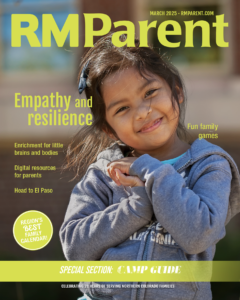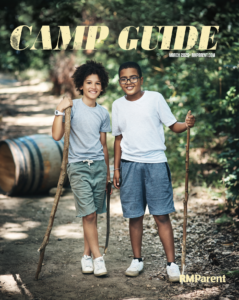Skills for developing friendships
Being a great friend doesn’t always come naturally. As kids grow, they hone their friendship skills with practice, and all kids struggle with friendships at times. As parents, we can help. If you are hearing your child say that they feel left out, feel sad, or they don’t like going to school, it’s likely a sign that they could use a little help in the friendship department. Here are some ideas.
Role play how to talk with friends
This may seem cheesy, but it works. Tell your child you’d like to play a game. Pretend that you are a classmate that your child wants to be friends with, and ask her what she would do or say to get your attention or ask you to play. During the game, interject ideas, as in, “Hey, you could ask me about things we have in common, like soccer and building things, or things I like to do.” Then practice basic communication skills, like starting and ending conversations, listening and responding with enthusiasm or interest, giving compliments, and taking turns talking. From there, you can move onto harder friendship skills like how to deal with a bully, or imagining what another person might be feeling and providing support. Role playing might feel contrived, but when your child is in a real-life situation, the road to better communication has already been laid and she will take it automatically.
Identify problems and set goals for improvement
To get the inside scoop on what’s happening at school when it comes to friends, have a chat with your child’s teacher. Teachers watch kids interact all day long, and they know your child in a way that you might not. Ask for feedback, letting them know that you welcome their honesty on how your child gets along with others. Then ask what your child could work on when it comes to friendship skills. Maybe it’s being better at sharing supplies or keeping his hands to himself in the lunch line. Once you know the problem, you can start working on a solution.
Generally, the kids who have a hard time making friends come from two extremes—they are usually either very shy or they are more aggressive and impulsive. If your child is shy, set a goal with her to approach someone and ask if she can sit with them at lunch, or play a game together on the playground. Set a goal to practice this skill once a week, and then celebrate her successes. Or, if your child isn’t a great listener and tends to overpower the conversation, point it out when you see it happening, as in, ‘I was talking. Please let me finish what I am saying, and then I will be happy to hear what you have to say.” Challenge her to remain quiet and make eye contact with you while you finish what you have to say. And keep any corrections or suggestions positive.
Create easy get-togethers
Setting up relaxed social time on your child’s own turf with a select friend is an easy way to put him in a situation where he can hone his friendship skills. He will have more confidence in his own home. Also, doing activities together creates an easy base for a friendship to form. Depending on your child’s age, you can do the asking for playdates, as in ‘Justin and I were talking last night and he said he really enjoys Ryan and he’d love to have him over for a play date sometime.’ Make get togethers easy. For example, going to the park right after school or having a spontaneous playdate after soccer practice are natural ways to create time together.
Do your best to avoid viewing social gatherings as a test for your child. Also, don’t try too hard or hover. If the situation is too forced, both kids will feel it. If the play date gets off track, such as an argument breaks out or the conversation isn’t flowing, you can casually redirect with a snack break or a new activity.
Remember, practice doesn’t make perfect, practice makes better. Be patient and celebrate successes. All your child needs is one or two friends to make her feel connected.

Lynn U Nichols is a longtime Fort Collins-based freelance writer who specializes in health and wellness content. She raised two boys while writing for RM Parent Magazine, gratefully applying the wisdom she gleaned from interviews with child experts along the way. Learn more at healthwritecommunications.com.




